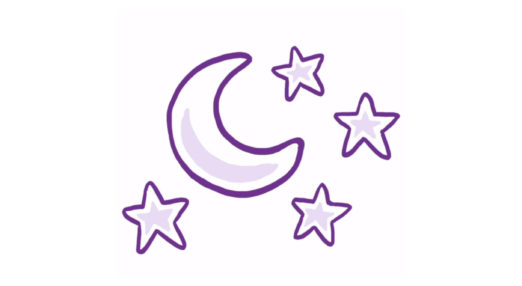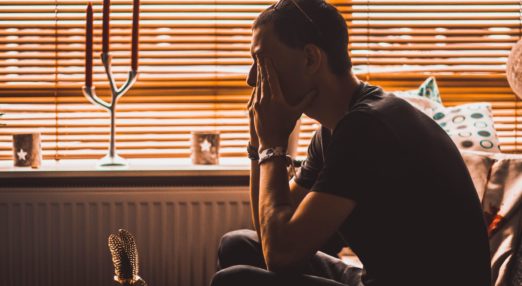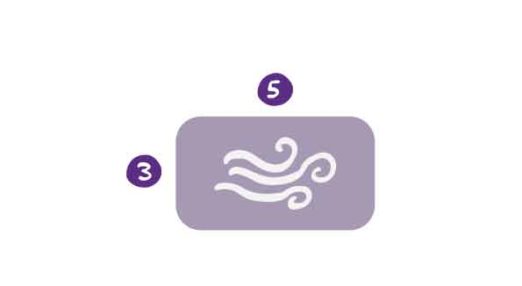Conversation about Sleep Issues
Tanaka talks to John about the impact of sexual violence on sleep, and things you can do to support yourself.
So tell us a little bit about yourself.
My name is Tanaka, I’m a writer and I work with the media as well, and I’m a survivor of sexual violence.
One of the legacies of sexual assault is that I believe you get problems with sleep. So why does sleep become a problem?
I think it’s because you can’t distract yourself when you’re trying to go to sleep, can you? That’s where all of those thoughts that you’ve maybe been pushing away or haven’t been about the to do list or whatever, that’s when they come up from the day.
I think if you’ve been through a really traumatic, difficult experience, you know your your brain’s going to be kind of, you know, constantly prepared for a traumatic, difficult experience. Your adrenalin is going to be up. It’s going to be really difficult for you to wind down and relax. So you’ve got thoughts racing. You’ve got your adrenaline is high. Your body’s often reacting as if there’s a threat in the room, even if actually you’re you’re in a really safe situation.
And that trauma response can continue on for years and years and years, and people really need some support to try and have the tools to essentially speak to you, to your body, into your brain and tell it, ‘Look, we’re not in that situation right now, we can relax’.
Can you tell me how it affects you and what your experience is?
There’s the two things, there’s the getting to sleep and then there’s the nightmares once you are asleep. And I guess the nightmares are the things that people know about, right, like you see in movies, someone like bolts awake and screaming and all of that stuff. And I’ve definitely had that. But I also just have kind of really disrupted sleep sometimes where I’m just, yeah, just waking up three or four times a night. And it’s not always nightmares about the assaults, either. It’s sometimes just really abstract stuff, which is kind of related to it.
So, I mean, every night or is it..?
It’s like it depends. So it comes in waves. So I’ll have really good sleep for six months and then something will set me off. I’ll see kind of sexual violence on the telly or, you know, it will be the anniversary. That’s a big one. Anniversaries of the rape that happened to me. And then suddenly my sleep goes. It just gets pants for a while. I put it in my diary now. I actually have to put in that week or fortnight or thereabouts. I know I’m going to be having rubbish sleep. I know I’m going to be groggy because the anniversary’s around.
Does it act like a big trigger?
Yeah, yeah, it’s exactly a trigger. And it’s funny because I think people think what triggers it has to be something that happens in the moment. You have this extreme reaction, but it’s not. It’s not always like that. You can see something triggering and you’re like, Oh, I’m fine, and then you’re a zombie for two weeks and you don’t you don’t always know that it’s that thing that set you off.
And so then will it be like a regular thing, that every anniversary you’ll just not sleep, so you just know you’re not going to sleep?
Yeah, for me, pretty much. And that’s actually that’s quite… I don’t want to say I’m lucky, but that it’s quite good, that it’s not that unpredictable for me. D’ya know what I mean? I can plan my life in some ways around it, and I can take steps. And, you know, I say to my partner,’ Look, I’m going to be on the sofa because I don’t want to disrupt your sleep for the next couple of nights or whatever’.
Can I just say that’s a really kind and caring thing? I mean, because again, it’s a different world to me. Like, you know, as a straight man, I know that, you know, if my missus knew she’s going to have a bad night, she’d go, ‘I’m not gonna be able to sleep so you can go on the couch’.
Well, to be fair, we take it in turns, but it’s hard, right? Because you’re dealing with this thing, which is it’s neither of your fault. My partner is one of those wonderful people in the world. Neither of us is at fault for this, but we’re the ones who are having to live with it in our relationship, in our lives, so we have to manage it together.
The thing I think for people who do have partners, that is really important, is that it’s us against the problem. It’s not about me being broken or about it being my fault. It’s really just like, this is where we are. This is something we both have to tackle as as a team, and that makes it so much easier to talk about because you’re not kind of feeling, ‘Oh God, you know, there’s something wrong with me that I’m burdening the person I love with’.
So then you say to your partner, ‘look, I may…it’s coming up to a tough time for me. I may wake up in the night..what?.. screaming or just sweating or just shivering?
So for me, I will wake up and I’ll be flailing. So I’ve had a couple of times before where it’s not just me waking up. I’ve gone and accidentally, you know, elbowed him in the shoulder or something. And so that’s the stuff we really try and avoid. I have to take myself off, or he has to take himself off to the sofa bed. We’ve got to have a good sofa bed. That’s something.
So you’re actually planning this to the extent that you’ve actually got alternate night time furniture?
Yeah. And we’re really lucky that we have the space in the money and all of the things to do that not everyone does, obviously.
I think that’s the thing people forget is there’s a lot of work that goes into being a survivor. It’s not just about sitting with something difficult that’s happened to you and dealing with it and kind of barreling through. You know, there’s all of these practical things you’ve got to do to rearrange the way you live your life.
So do you have little techniques that you use that maybe other people could use or learn from?
The big thing for me is just having the best sleep hygiene I can, which, you know, is all of that, all of that stuff that they tell you to do, like not looking at your phone too much before bed. It’s making sure that you’ve got a blue light filter on your screens, it’s just basically having some kind of wind down routine, having a hot bath, having a hot drink. All of that stuff, which is going to soothe your body down. Doing some breathing exercises as well. That’s the magic for me. It’s a bit of meditation and breathing.
So at night time, then you try to make a safe space? Thats what I’m getting…. and then in terms of clothing in bed do you feel more secure with more clothes on?
Just as you are saying that I’m suddenly realising I don’t sleep naked anymore, can’t do it. Which I hadn’t actually hadn’t thought of before. But yeah, I definitely have to. I’m a big, pyjama man now.
Mate, don’t knock the pyjamas. A good pair of pyjamas are the best. Winceyette or nylon? But it’s about those practical things I imagine – those little defensive things…
Yeah, it’s about, kind of almost like heavy pyjamas that make you feel really secure. A bit of weight on your body, a bit like being hugged. That works for me.
Do you think it’s the same for single people? Is it easier to cope with if you’ve got a partner? Or do you think… does that make it harder?
I think. I think it’s just different. I don’t think it’s easier or harder. I think for me anyway. It was just really, really different because one of the big things for me was I felt really scared going to sleep even on my own. You know, it was… I had a big hyper-vigilance.
And of course, you know, at that time of the day, there’s nothing you can really do. You’re there on your own with your thoughts in a room. All of those worries and those anxieties can come up. So for me, it was kind of like I was checking that the window was closed three times, and every time a fox moved in the garden outside, it was, you know, it was like, ‘Oh God, what’s going on’? And having someone else change that. But it brought its own challenges as well.
Has it got easier over time? Or has it got..?
Yeah, I think the thing is overall, it gets easier. Like for me, there’s definitely a trajectory where this year is better than last year, but this week might not be better than last week. And so, you know, it goes up and down and up and down, but it gets better overall, I think.
But I think ultimately, if you’re not mentally in a good place, everything is harder to deal with isn’t it? So if you’re not sleeping, you’re not going to be mentally in a good place. What about medication? Would you ever consider that?
Yeah, so I haven’t. But I think it’s an amazing tool for people who really need it. I think going to the doctor and saying, ‘Look, this is a really specific thing that I want to deal with when it comes to the impacts of sexual violence or sexual abuse. I want to talk about the sleep stuff’.
Because that’s your foundation. You know, all the other work, all the therapy you might want to do. All of these other things. If you’re not sleeping well, then you’re starting… you know, behind the line.
What about television? Do you have a television in the bedroom?
No, no television, not even Netflix. No Netflix in bed. And I’m a dictator about that. Proper pyjamas. Proper cup of herbal tea. No caffeine. And then the thing I do is a lot of kind of meditation and breathing exercises. Really just telling your brain and your body, it’s time to wind down. It’s time to, you know, calm it and set yourself up well for a good night’s sleep.
So I never understand this concept of meditation. Is it just being quiet and not thinking about anything?
Yeah, I mean, there’s various ways like different stuff works for different people, and there’s lots of fantastic stuff on the website here for people who are interested in kind of figuring what that looks like for them. For me, it’s kind of just training your mind to focus on the breath. That really works for me. So whenever my brain’s going to, you know, Oh, this thing.. this horrible thing happened in 2011, and this thing happened, you know, last week or whatever. It’s just kind of coming back to ‘actually, we’re here, we’re in a really kind of pretty comfortable, safe feeling place’.
And then what about people who don’t want to sleep? Because that’s the toughest time. That’s when you’re on your own, isn’t it?
Yeah, that’s definitely something I struggled with, particularly in the early years after I was raped. I was so scared of going to sleep, I was so scared of the nightmares. I was so scared of, you know, all of the anxiety. I was scared of being on my own. All of those things. And that’s when I was kind of like staying up till 3:00 a.m., 4:00 a.m.,you know.
Really until my body was too tired to stay awake. And the things that really helped me change that were getting getting the therapy, getting some really good trauma informed help. And again – those calming down exercises, that you’re just kind of reminding your brain that it’s actually in a pretty OK place now, it’s not stuck in the past in the trauma moment.
So if you could sum it up, just a couple of top tips that you think might be helpful to people.
I think if you need help with sleep issues, have a look at the 1in6.uk website. And there’s some really fantastic exercises there to help you sleep. So you’ve got to find language to tell our brains and our bodies, actually, ‘you’re safe. It’s time to relax. It’s time to calm everything down. We’re actually OK’.
Tanaka Mhishi is a poet, playwright and performer and is a survivor of sexual violence.
He works with a number of organisations on issues surrounding consent and sexual violence, with a particular interest in the way we can bring creativity to these difficult subjects.
He is on the Advisory Group which leads the delivery of 1in6.uk and has contributed to content about sleep, self harm and finding a route towards healing.
John Ryan is a stand up comedian, writer and presenter and ally to male survivors.
He works for a range of health organisations using comedy to raise awareness and share information.
He is passionate about helping people to become good allies and supporters to men and boys who have experienced sexual abuse or assault.





